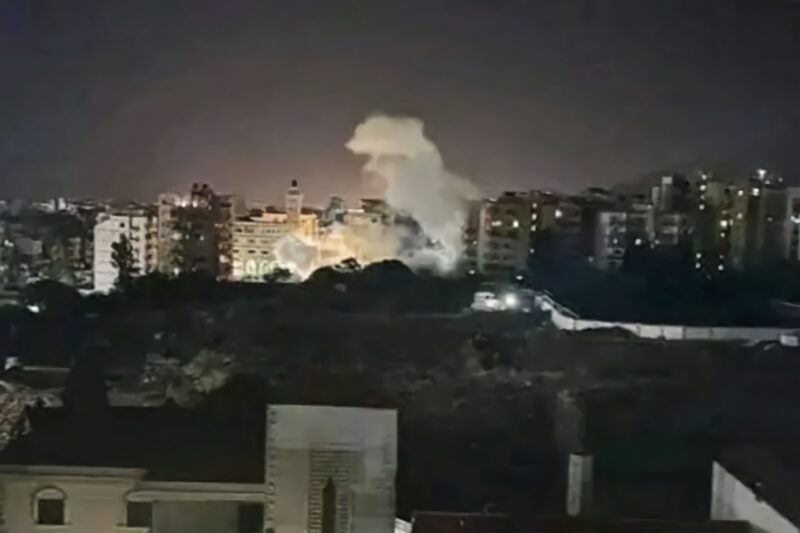Israeli airstrikes killed Hamas commander Saeed Attallah Ali, his wife, and two daughters on Saturday, October 4, in a targeted strike on their home in the Beddawi camp near Tripoli, northern Lebanon.
This attack marks the first instance of Israeli strikes in the area since the Gaza war escalated nearly a year ago. Hamas confirmed the deaths and condemned the widening conflict, which has expanded beyond Gaza, now involving Hezbollah and various factions in Lebanon.
The Ongoing Conflict
Since the start of the Gaza conflict, Israeli forces have intensified their military operations against Hamas, Hezbollah, and affiliated militant groups, primarily targeting southern Lebanon. Early Saturday morning, explosions rocked Beirut’s southern suburbs, including Dahiyeh, where residents received pre-strike warnings from Israel. Despite these warnings, the extent of civilian casualties remains unclear.
The Israeli military also targeted Hezbollah’s intelligence headquarters and a mosque near Salah Ghandour Hospital, which allegedly served as a command center for Hezbollah operations. Nine hospital staff members were critically injured in the attack, further escalating the humanitarian crisis.
In retaliation, Hezbollah launched multiple rocket strikes, including an attack on Israel’s Ramat David Airbase. Combat between Israeli forces and Hezbollah fighters has intensified in southern Lebanon, leading to a spike in casualties and destruction on both sides. Israel’s continued military operations in Lebanon reflect growing regional tensions, with Israel aiming to neutralize Hezbollah’s expanding influence and prevent further cross-border assaults.
The Lebanese Ministry of Public Health reported that more than 2,000 Lebanese citizens have been killed by Israeli airstrikes over the past year, with a significant portion of the casualties occurring in the last two weeks. As violence escalates, displacement of civilians has surged, overwhelming shelters and refugee camps throughout Lebanon. The United Nations has expressed deep concern about the growing civilian death toll, labeling the strikes on civilian areas as “totally unacceptable.” The UN called for immediate de-escalation and stressed the need for international intervention to prevent further loss of life.
In a bid to protect their citizens, South Korea evacuated 97 nationals from Lebanon on Saturday, underscoring the international ramifications of the conflict. The ongoing military exchanges and retaliatory strikes are exacerbating Lebanon’s already fragile political and economic situation, with the country teetering on the brink of a larger regional war.
International Response
The United Nations peacekeeping forces stationed in southern Lebanon have so far refused Israeli requests to relocate, citing their commitment to maintaining a neutral presence in the region. Meanwhile, Israel has ramped up diplomatic efforts to justify its military campaign, pointing to Hezbollah’s growing arsenal and continued support from Iran as key factors behind its expanded operations in Lebanon.
With the border between Lebanon and Syria closed following Israeli strikes on Friday, the humanitarian crisis in Lebanon continues to worsen, as vital aid and relief efforts remain stymied. The international community has called for urgent peace talks to prevent the situation from spiraling into a full-scale war that could engulf neighboring countries.










Join our Channel...